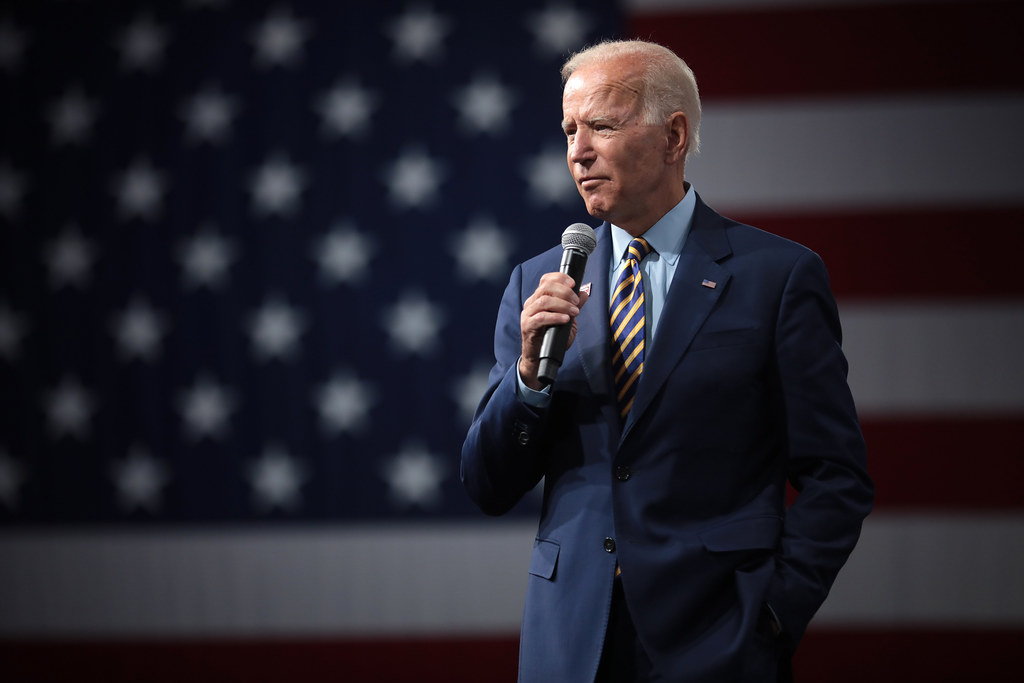On the 4th of February, President Biden delivered his first speech detailing the foreign policy agenda of his administration. The speech marked the end of Trump’s “America First” approach to diplomacy, characterised by four years of isolationist and protectionist policies, and America’s return to taking a prominent role in world affairs with the words “America is back… Diplomacy is back…”
The speech explained the different policy areas that the Biden administration would focus on, including raising “the cost” on Russia over issues including election interference and the treatment of its citizens; re-joining the Paris Climate Agreement, and stopping the planned withdrawal of American troops from Germany.
However, the most prominent foreign policy agenda mentioned was the announcement that the Biden-Harris administration would cease the sale of U.S. arms and munitions to Saudi Arabia that were to be deployed to the conflict in Yemen. Until the announcement, the United States had been providing military support to the Saudi-led coalition against the Iranian-backed Houthi rebels in Yemen since 2014. This Obama era policy continued under the Trump administration despite increasing evidence that American munitions were being used to target civilians.
According to the Yemen Data Project, nearly 18,000 civilians have been killed by military action since 2015, and the conflict has led to the World Food Program describing it as the world’s worst humanitarian crisis with an estimated 20 million people being affected by hunger and malnutrition from famine.
The ending of U.S. support marks a huge step in ending the conflict that has devastated Yemen and its people for nearly 7 years, as well as signalling a possible departure from the foreign policy approach which characterised the Obama years. However, it is important to refrain from rejoicing prematurely over the prospects of a new dawn of progressively inclined American diplomacy. Every piece of foreign policy has its limitations and must be scrutinised so to ensure it truly serves to benefit the situation it concerns.
For example, while liberal Americans are celebrating this perceived shift in foreign relations, the decision is unlikely to significantly reduce the damage caused around the world by the approximately hundreds of billions of dollars in arms sales conducted by the United States each year. Additionally, NGOs have highlighted the need for the U.S. to lift the classification of Houthi rebels as a terrorist organisation in order to facilitate the provision of aid to avoid prolonging the humanitarian crisis.
Therefore, the key question following this announcement is whether Biden’s foreign policy will be defined by a progressive shift from the attitudes of the past, or if the passing of time and increased scrutiny will reveal a continuation of Obama’s neo-liberal approach to diplomacy.
What is for certain is that Biden has a chequered history in terms of foreign policy decisions. On the one hand, he opposed President George H.W. Bush on the Persian Gulf War and persuaded Obama to halve the number of troops that were to be deployed to Afghanistan. On the other hand, in 2002 he voted in favour of the use of force in Iraq, and more damningly was the Vice President of an administration that carried out 542 drone strikes over 8 years, killing 3,797 people, of which 324 were civilians.
Biden is a seasoned politician and has consistently demonstrated the ability to change his views over his nearly 50-year political career. He understands the need to adapt, especially now in a time of increased political awareness and access to information. Attitudes have changed and his ‘brand’ has changed with them, suggesting the possibility of a shift from the foreign policy of previous eras.
However, it must be remembered that the position of President of the United States has left blood on the hands of its occupiers. Biden’s recent announcement does inspire hope for the future of U.S. diplomacy. However, this should be viewed with intense scrutiny as all policy has its limitations and old practices are likely to persist in some form.
Rayan Striebel
Featured Image Source: Flickr

